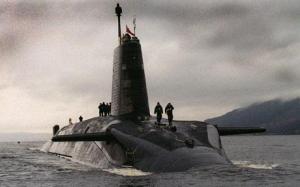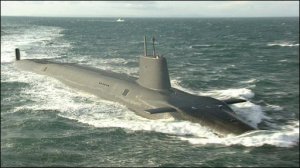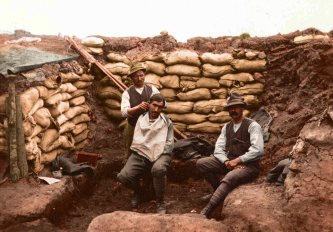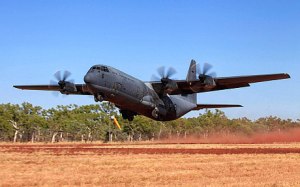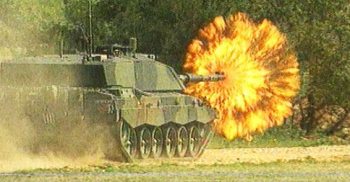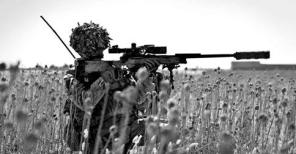Let us not forget that the greatest failure is fearing failure itself…
Scottish Independence Referendum and the potential consequences for Trident
The people of Scotland are just sixteen days away from voting to decide if they will remain as part of the United Kingdom or leave the Union that has been in place since 1707 as the Kingdom of Great Britain.
This post will look at how independence would affect Trident – the UK’s nuclear weapons programme that is based in Scotland, in the River Clyde.
The United Kingdom has four Vanguard-class submarines based at Her Majesty’s Naval Base Clyde at Farslane, on the west coast of Scotland. These submarines make up Britain’s nuclear weapons programme, which is known as Trident. According to government documents at least one of the nuclear-armed submarines has always been on patrol somewhere in the world’s oceans since 1969. This is in order to assure that if the UK came under nuclear attack from a foreign aggressor she would be able to launch a retaliatory strike from the submarine. This concept is known as mutually assured destruction.
The current trident system is coming to the end of its working life and in 2007 the House of Commons voted in favour of replacing it. A decision on the exact nature of the replacement has been deferred until after 2016 as the current coalition government are unable to agree on how exactly to continue the UK’s nuclear weapons programme – but all three of the main UK parties agree that it does need to be replaced.
The Scottish National Party has stated in its manifesto that an independent Scotland would get rid of nuclear weapons – meaning that if Scotland votes ‘Yes’ on 18th September the SNP is likely to demand the removal of Trident from Scottish waters. In the Scottish government’s prospectus for independence, Scotland’s Future, they state that, “negotiations on the maintenance of shared capabilities would not include nuclear weapons. This Scottish government would make early agreement on the speediest safe removal of nuclear weapons a priority. This would be with a view to the removal of Trident within the first term of the Scottish Parliament following independence.” The Scottish National Party have said that it is wrong both economically and morally to keep Trident, saying it is, “an affront to basic decency with its indiscriminate and inhumane destructive power.”
The Royal United Services Institute has said that removing trident would be very difficult, but “not impossible”. There are a huge number of difficulties associated with the possibility of having to move the nuclear programme from Farslane and the BBC have said that, ‘Given the difficulties associated with moving the nuclear programme from Farslane rather than dismantling it, it is possible that Scottish independence would have the practical effect of forcing the UK to give up sea-based nuclear weapons entirely.’ The BBC also quote Andrew Dormon in a paper for the Royal Institute of International Affairs, in which he argues that such an outcome would “profoundly change the composition and functioning of the Security Council, significantly diminish UK’s standing, alter the balance of power in Europe and increase the shift of power from the North Atlantic to the Pacific”.
The vote on 18th September will no doubt hold enormous consequences in terms of education, the NHS, childcare and the economy amongst others, but it is clear from the potential issues that may arise with the United Kingdom’s nuclear programme that defence is also going to be affected in a huge way, regardless of the outcome of the referendum.
World War 1 in Colour (Photos)
As described on the First World War Centenary Website,
“By the end of the First World War there were very few people in the countries that took part who remained unaffected. The war reached out and touched almost everyone’s life in some way or other.”
To commemorate the 100th year since the outbreak of the First World War, the Open University has retrospectively added colour to black and white photographs taken at the time to help bring them to life.
See http://www.openuniversity.edu/news/news/world-war-1-in-colour-photos to view more of the ‘colourised’ photographs.
See more http://www.thetimes.co.uk/tto/archive/first-world-war/article4162377.ece
RAF Hercules planes drop 14 tons of aid
Two RAF Hercules planes have joined planes from Australia, America and France in dropping 14 tons of food and water to residents of an Iraqi town under siege by the Islamic State.
15,000 residents of the Shia Turkmen village had survived on minimal food and water supplies whilst under siege from IS.
Click on this link to see footage taken during the drop –
Invictus Games Starting in just over a week
The first Invictus Games comes to London’s Olympic Park in just over a week. During the four day long event over 400 competitors from 13 nations will take part in the multi-sport event designed for wounded soldiers. The countries taking part have all fought alongside the United Kingdom in recent military campaigns, including, the United States, Australia, Canada, Germany, Denmark, New Zealand and Afghanistan.
The event has been championed by Prince Harry and aims to use the power of sport to inspire recovery, support rehabilitation, and generate a wider understanding and respect of those who serve their country. Prince Harry will be taking part in a wheelchair rugby match alongside Dame Kelly Holmes, Denise Lewis, Mike and Zara Tindall, with Rugby World Cup winners Jonny Wilkinson and Sir Clive Woodward managing the teams.
Tickets are available for £12.85 per session. For more information and tickets visit invictusgames.org
Marine Prepares for Invictus Games Cycling
It’s only nine days until London’s Olympic Park host the Invictus Games. The Games will see hundreds of athletes from fourteen nations competing across nine sports.
JJ Chalmers, the Royal Marine of 42 Commando was injured three years ago in Afghanistan, and will be representing Great Britain at cycling at the games. See the link below for an interview with JJ Chalmers –
10 Facts About Britain’s Main Battle Tank
The Challenger 2 has a 1200bhp Perkins-Condor cv12 diesel engine and can travel up to 37 MPH.
Read 9 more facts about the Challenger 2 here: http://www.forces.tv/35261032
See http://www.troopsave.com for ‘Fantastic Daily Deals for the Armed Forces and their Families – Our Troops are the BEST so they deserve the BEST.’
Stunning photos of British Soldiers in action
A Sea of Poppies to Honour the Fallen
Now that’s real art:
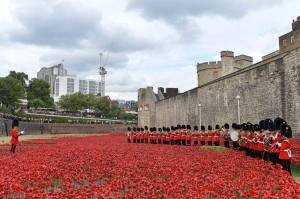
‘Major artinstallation at the Tower of London to honour the fallen soldiers of the First World War. Entitled ‘Blood Swept Lands and Seas of Red”
Read more:https://www.gov.uk/government/news/a-sea-of-poppies-to-honour-the-fallen
Troopsave: www.troopsave.com



